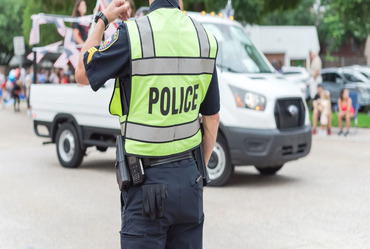Search

Every driver needs to maintain knowledge about current traffic rules. A number of governmental regions established new speeding law standards which aim to enhance traffic security throughout their jurisdiction.
Virginia’s New Speeding Regulations Virginia established more severe speeding regulations which specifically target commercial vehicle operators to minimize reckless driving situations. A commercial vehicle driver who exceeds the limit by fifteen miles per hour now faces possible charges for reckless driving at a misdemeanor level. Driving over 20 mph above the limit used to constitute reckless driving or exceeding 85 mph without considering the posted speed. Commercial driving violations lead to enhanced fines against drivers which extend from $500 to $2,500. Multiple speeding violations will result in mandatory CDL suspension and might lead to indefinite driver disqualification.
Through a pilot program California initiated automated enforcement to deal with speeding issues. Speed cameras were given authorization by major city governments including San Francisco and San Jose and Oakland and Glendale and Los Angeles and Long Beach to operate in high-risk school zone areas. Fines starting from $50 will be imposed after a 60-day notification period on drivers who speed beyond the safe limit by 11 mph or more. Income levels of drivers will affect the number of fines through an equity-based fine adjustment system. New York state has launched a proposal to implement speed limitation technology-based initiatives. Tragic repeat-offender accidents in New York have motivated legislators to draft this new initiative. Those who committed multiple speeding violations must install speed limit prevention devices which ensure their vehicles stay within a 5-mph limit range. The purpose of this protocol is to lower the occurrence of accidents from drivers who frequently offend.
The educational safety improvements in Fairfax County Virginia will adopt the following policies: The penalty for unlawful school bus passing will cost $250 beginning April 9th. A thirty-day warning period will start before the implementation of fines. Monitoring cameras will be installed in fifty school buses under a monitoring program that may expand through evaluation results. San Francisco’s Income-Based Speeding Fines San Francisco launched a program to achieve proper speeding law enforcement through fair practices. The fines for speeding violations now rely on a sliding scale that uses driver income to provide up to 80% reduction for low-income drivers. High-injury areas in the city now have thirty-three Automated Speed Enforcement Cameras which monitor drivers to prevent speeding.
The new legislation demonstrates increasing society-wide acceptance of using technology in combination with customized punishment systems to fight excessive speeding while protecting road safety. People who operate vehicles need to understand the state laws where they drive because ignorance of these rules leads to fines and produces better driving conditions on roads.